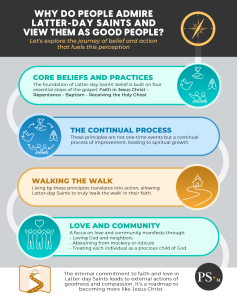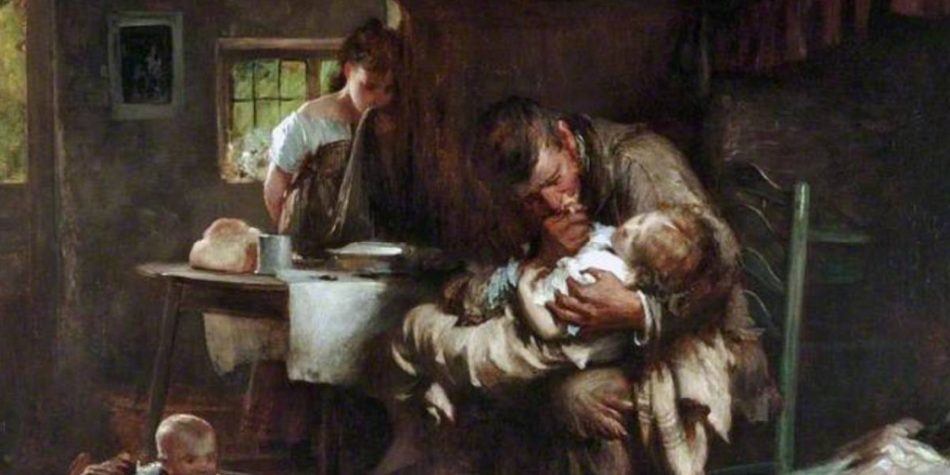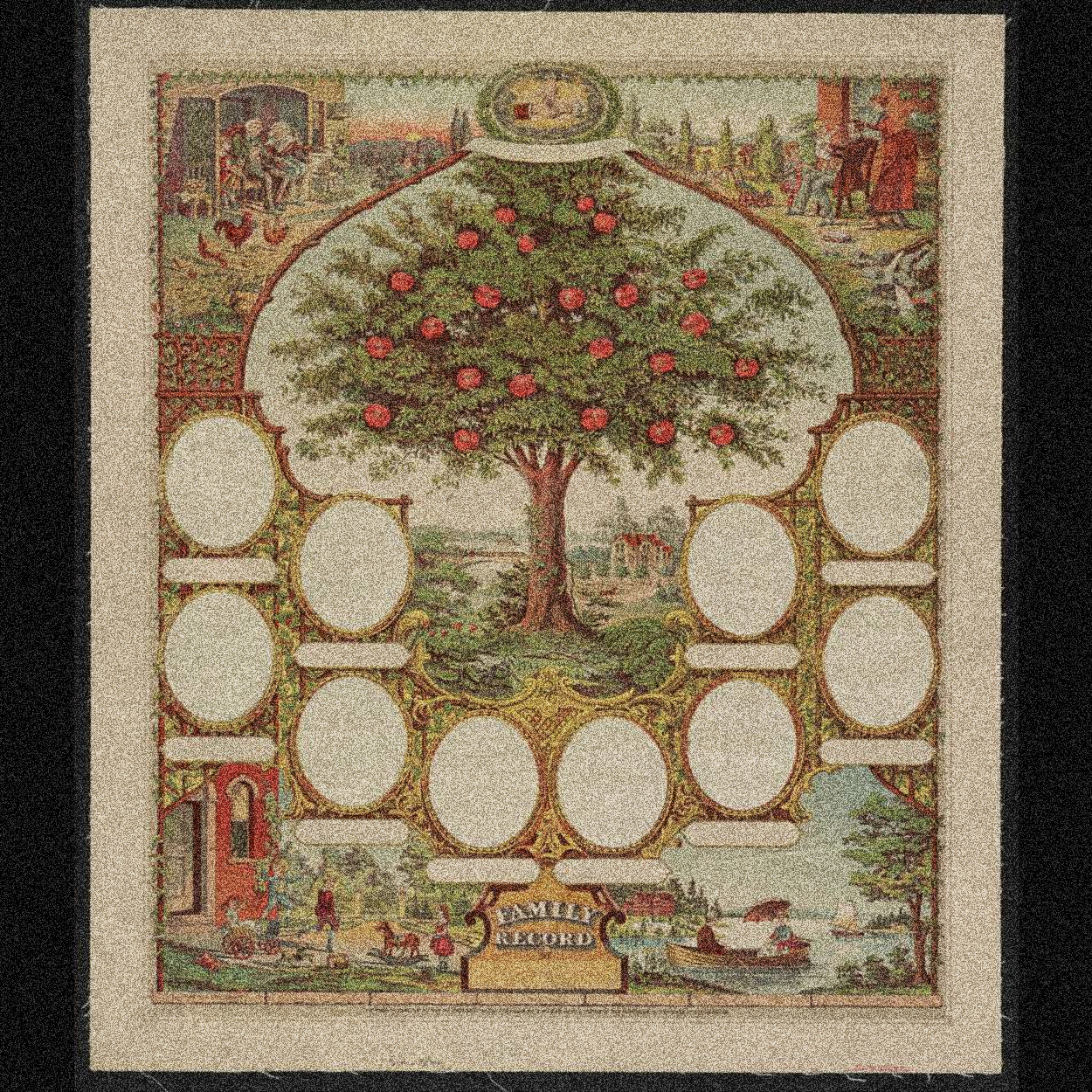In a landmark article on the power of negative experiences, Baumeister, Bratslavsky, Finkenauer, and Vohs (2001) demonstrated that across the clear majority of domains studied by psychologists (including relationship research), “bad is stronger than good.” Baumeister and colleagues found that “bad events will have longer lasting and more intense consequences than good events” (p. 325); that “single bad events are far stronger than even the strongest good ones” (p. 326); that “close relationships are more deeply and conclusively affected by destructive actions than by constructive ones” (p. 355); and that “Hardly any exceptions (indicating greater power of good) can be found” (p. 323).
At the same time, a large and growing body of research has demonstrated that religion and spirituality, diversely measured, are associated with a wide range of benefits to individuals, couples, and families. Those benefits have been connected to the capacity of religious beliefs, practices, and communities to provide meaning, structure, and social support. If religion and spirituality can help, how does this help occur? Are religious and spiritual experiences part of the reason why religiosity and spirituality have been helpful?
There are at least two ways whereby good experiences could balance out or even overpower bad experiences. One way is if many positive/good experiences overwhelm the bad experience or experiences. In the area of religion and spirituality, this could involve regular spiritual experiences from prayer, meditation, scripture study, and other spiritual practices. Evidence we cite later supports this possibility. Another counterbalance may be one extremely positive/good experience of sufficient power as to overcome the effects of a negative/bad experience on its own. In the area of religion and spirituality, this could involve one transformative, transcendent spiritual (religious, mystical) experience.
Is it possible that some people who have experienced adversity and potentially traumatic events—but prove resilient—can do so, in part, due to compensatory transcendent experiences? Perhaps one reason there has been relatively little research on the potentially transformative effects of transcendent experience on various aspects of life, including family relationships, is that these experiences are conceived as unusual. In his book Intimacy, Transcendence, and Psychology, Steen Halling (2008) addressed and countered this notion:
The term “transcendence” is often used to imply something otherworldly, religious, or metaphysical, or outside of the lives of ordinary people and relationships. Thus, transcendence is commonly presented as a movement beyond the actual, the embodied, and the historical, something that should be studied by theologians or philosophers, but not by psychologists. In contrast, I argue that transcendence is a central thread in the fabric of ordinary human existence (p. 177).
Survey data indicate that Halling is correct. Nearly 90% of Americans believe in God. Data from the Pew Research Center released in September of 2017 indicate that 48% of Americans consider themselves “religious and spiritual,” with another 27% saying they are “spiritual but not religious.” Combining these figures, 75% of Americans consider themselves to be spiritual. Thus, it should not be surprising that, according to Pew Research data, 49% of Americans and 61% of regular attenders at religious services report they “have had religious or mystical experiences.”
We concur that transcendent experience is far more pervasive and salient than social science research might indicate. For two decades, our work has focused on processes and meanings at the nexus of religion and family life. We have explored these connections using rigorous qualitative analyses of a large and diverse sample of American families from many faiths. Many of those we have interviewed, without being specifically asked about such experiences, have told us about times when transcendent spiritual experiences during times of significant adversity—including disaster, loss, infidelity, abuse, the grave illness or death of a loved one, and other difficulties—have deeply influenced them and their family relationships.
In our research with the American Families of Faith project, we’ve learned from many participant accounts that transcendent experiences can have the greatest impact when someone is simultaneously experiencing great trials. In other words, the worst of times are sometimes accompanied by experiences that are uniquely and deeply spiritual and influential. Indeed, many of the women and men we have interviewed reported that transcendent experiences during difficult circumstances even led to vital, positive changes in their marriage and family relationships.
Our related study, published in Religions (an open-access scholarly journal), focuses on how transcendent experiences influence relationships rather than on the details of the transcendent experiences themselves. After interviewing nearly 300 religiously, racially, and ethnically diverse families, four relationship-enhancing outcomes due to transcendent religious experiences during adversity emerged. Namely, we found that transcendent religious experiences during trials can: 1) provide relational meaning, 2) increase relational depth, 3) heal relational hurt, and 4) encourage relational action.
Transcendent religious experiences are defined as “sacred personal experiences in which a person believes they have experienced God (as they understand God) in some way that leads them to desire to make changes in their personal religious life. This experience may involve one or more of the following: a sense of oneness with God, a connection with God, being forgiven by God, or obtaining some kind of knowledge from God (e.g., being instructed, inspired, guided, protected)” (p. 4). Relationship-enhancing religious experiences are defined as “transcendent religious experiences that were reported to lead to some kind of [positive] change in a person’s ways of thinking, feeling, or acting toward loved ones and/or toward relationships with loved ones” (p. 4). With these definitions in mind, let’s take a closer look at the four outcomes that emerged from participant interviews.
Outcome 1: Provide Relational Meaning
Transcendent religious experiences during difficult trials reportedly helped participants develop an increased sense of the “sacred” essence of family relationships. After sharing a transcendent experience, one father commented, “It completely changed my life … it really motivated me to be able to see [our] kids in a different manner.” A mother shared a transcendent experience during infertility that intensified her feelings surrounding motherhood:
[My husband and I said], “We have been trying all these years, and we haven’t been able to have any kids, [so] let’s adopt kids.” … We [prayed], “Lord, give us some kids.” That next week, … my aunt said, … “I got a baby you can adopt.” [Later, we were blessed with more]. … So, I always say that [my children] are a gift; they are special to me.
A number of participants reported that transcendent experiences during challenges gave them a deeper understanding of their family relationships as well as their relationship with God. One father explained:
Having kids and becoming a father has helped me understand what my Heavenly Father must feel and go through watching me. You … would do everything for your kids if you could … [but] there are times that you can’t … and [they need to] learn from experience. … When [my son] was sick, I felt how our Heavenly Father must feel whenever one of us is sick. … It’s … made me appreciate what being a loving father is like. It’s made me appreciate that aspect of God as a father and the sacrifice He made for his Son to come to Earth. I can’t imagine what that was like.
There was an apparent reciprocal relationship between this father’s relationship with God and the sacred nature of his relationship with his own son. Following the discussion of relational meaning, we now move on to the second observed outcome, which is an increase in relational depth.
Outcome 2: Increase Relational Depth
Transcendent experiences in adversity not only provided sacred meaning to relationships but also reportedly deepened the relationships of the participants. One father recalled:
It was certainly a wonderful and humbling experience … to realize that no matter what we do, it [could be God’s] will … that this baby may not live. … [T]here was a greater power who was … mindful and understood [and] helped me to just trust … that even if our baby died, that was not the end, that we [would] see the baby again. … [L]ooking back, I am grateful for that. It made me a stronger person … it made our family stronger.
One wife recalled her transcendent experience when her husband was near death. She reflected:
I just remember sitting there in the hospital room thinking, “I’m too young to be a widow.” … [T]he [congregational leader] … showed up and … I literally saw the power of Heaven descend. I tell you, it was just amazing. … Everything turned out well. … I think it made us stronger together and just really made us appreciate life a lot more.
Many transcendent experiences that took place during adversity were reported to have strengthened relationships at the same time as strengthening faith. An adult daughter shared:
I go back to my mom’s death. I think that was the most difficult situation that I’ve ever, ever had to contend with. … We’re still dealing with it and struggling with it, but I think knowing that I can lean and depend on God and go to Him in prayer has sustained me and my family, and I think it helps to bring my family closer together and brings some members of my family closer to Him.
Having discussed the strengthening power of transcendent experiences in deepening family relationships, we now turn to healing relational hurt.
Outcome 3: Heal Relational Hurt
Some participants reported that transcendent experiences helped them heal from the pain and hurt they had sustained from family members or other individuals. A remarried wife shared her transcendent experience during an extreme trial. She said:
My [first] husband … had extramarital affairs. … I was so unhappy, one time I wanted to just jump out of a window. … It was like I didn’t have nothing to live for. … I started going to this church … [and] learned about God. That was the greatest life-changing experience that I had … when I got saved and filled with the Holy Ghost.
Other participants spoke about how transcendent experiences enabled them to be aware of the hurt they had caused other people. For example, one wife reflected, “[One time] I did not want to pray together [with my spouse] when I was unhappy. But we did pray together, [and] when I began to pray, God let me [see] my weakness.” In a similar manner, a mother acknowledged, “I had spoken to [my daughter] much too sharply … and I went into [my] bedroom full of self-condemnation and remorse. … I thought, ‘… God is love. Love is all-powerful [and] ever-present.’ … [So I went] back and [apologized].”
In the case of both causing and receiving relational hurt, transcendent experiences reportedly facilitated healing for many participants. We now turn to the observed outcome of encouraging relational action.
Outcome 4: Encourage Relational Action
Lastly, religious transcendent experiences during adversity notably encouraged participants to take specific action to improve their relationships. There were times when these actions were inspired by transcendent experiences that involved making major decisions about the course of one’s life. One father shared that when praying for God’s guidance about a potential move, he was inspired toward a particular decision. He recalled:
I let God lead where I was going to go. … One of our sons had some real difficulties, and if we had moved away and he had stayed here at [the local university], we might have lost him completely. He went through severe depression and suicidal thoughts. … In retrospect, I can go back and see major [job] disappointments [were] turning me to something else that ended up being much better.
Another father’s transcendent experience in an unlikely setting inspired him to completely change his life in order to be a better husband and father. He shared:
I [was] misusing my family, … but when I accepted God that night, my life … began to change. … I was at a strip club one night. [I was] high, had been drinking, high as a kite, me and my buddy, and he was sitting just like me and you. … I heard a voice [tell me to leave], and I said [to my buddy], “Man, stop playing.” He said, “I ain’t call[ed] you.” . . . I heard that voice three times, and it was so soft. … I told my buddy, … I said, “I love you, but I can’t roll with you no more.” That was the challenge of my life, to give up the streets in order to come to where I needed to be. I thought it was a challenge, but it really wasn’t no challenge. … God had to change my life … and once God lined my priorities up, then everything started working the way it was supposed to … in my marriage.
Other participants shared stories of small, everyday decisions that were affected by transcendent experiences. One wife explained:
There was a point a few years back where there was a lot of stress … in our marriage. … [W]e were just so busy all the time. … [W]e were able to see that we needed to …spend more time together. [So] we started going out on dates more frequently and putting a lot more emphasis on our relationship. … It was just very clear that God was trying to help us understand that we had to put our relationship first and make sure we were strong before we could give what we needed to [give] to the kids.
An adult son shared a similar transcendent experience in which he was prompted to spend precious time with his mother during what turned out to be her final weeks of life. He said:
I saw God working when I was with my mother. … And that for me was a tremendous thing because … I got to spend that time with my mother, and most people just … call someone and say, “Oh, she’s not well,” and a month goes by and … she’s gone. But I was there.
During a variety of challenging experiences and transitions, transcendent experiences, ranging from simple to profound, were reported to have helped participants heal, improve, or transform their relationships with family members.
Did Transcendence Cause Transformation?
One could reasonably ask, “Was it really transcendent experience (often with God) that facilitated relational action and change?” In our reported data, many participants spoke of potently influential or even causal relationships between a transcendent experience and a relational outcome.
Phrases included: “It completely changed my life”; “it really motivated me”; “God definitely intervened”; “an experience that changed me for the better”; “it made me realize”; “I learned the importance of”; “it’s made me appreciate”; “helped me to just trust”; “it made us stronger together”; “that’s why we became closer”; “it helps to bring my family closer together”; “an experience that really strengthened our faith”; “knowing that [God] cared about what had happened definitely helped me get through that difficult time”; “when I began to pray, God let me [see] my weakness”; and “once God lined my priorities up, then everything started working the way it was supposed to . . . in my marriage.”
These verbatim excerpts only reflect cases where participants directly identified a clear causal relationship between a transcendent spiritual experience and a relational transformation within a single phrase. Many other narratives included statements of attributed causality that took longer to relate. Still other accounts featured participants clearly implying a causal relationship without stating it directly. Many of those we cite in this study reportedly believed their experiences resulted in important changes in their marriage and family relationships.
Conclusion
Is it possible that—at least sometimes—good can be stronger than bad? Is it possible that transcendence can help transform relationships during adversity? Many of our participants not only reported that it can, they buttressed their responses with reports from their lived experience. But what is the answer to the higher-stakes question: Can transcendence transcend even trauma? Based on preliminary data, some kinds of transcendent spiritual experiences seem to counter some kinds of traumatic experiences, if only partially.
Far more research is needed on this important question. The research study reported here was an exploration of possibility—not probability. Is it possible that transcendent experience helps to heal? Perhaps. It appears to be an interesting and important enough question to warrant sustained theoretical and empirical attention by social scientists.
Adversity in life is a certainty. However, from the hundreds of families we have interviewed, we have learned that the “worst of times” and the “best of times” often come as paired experiences in people’s lives—thereby creating opportunities for profound reflection and transformative change.

















